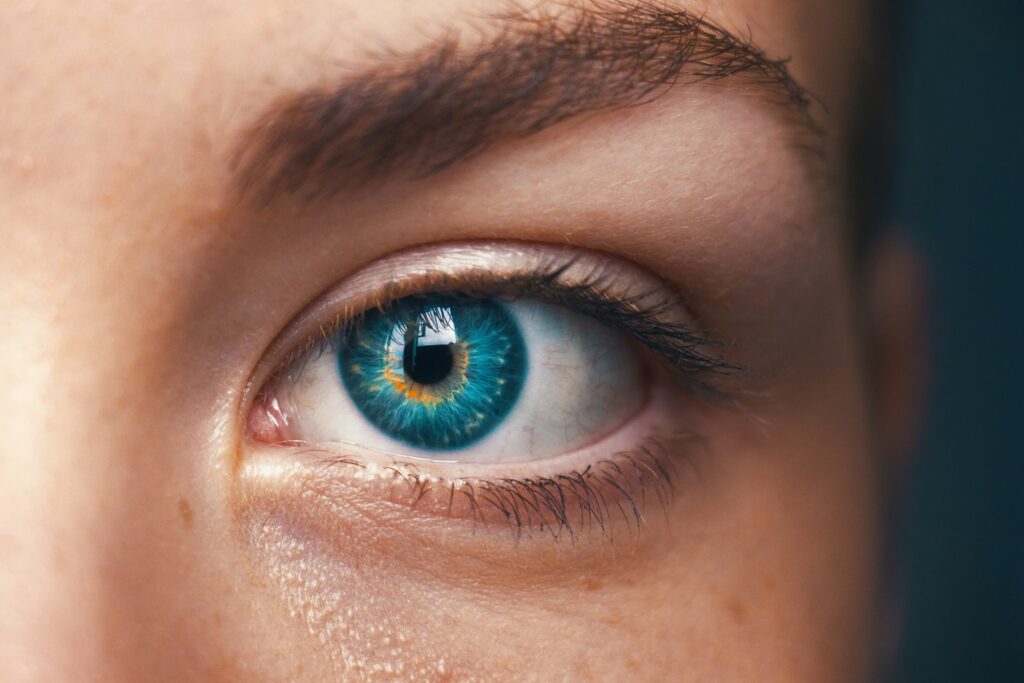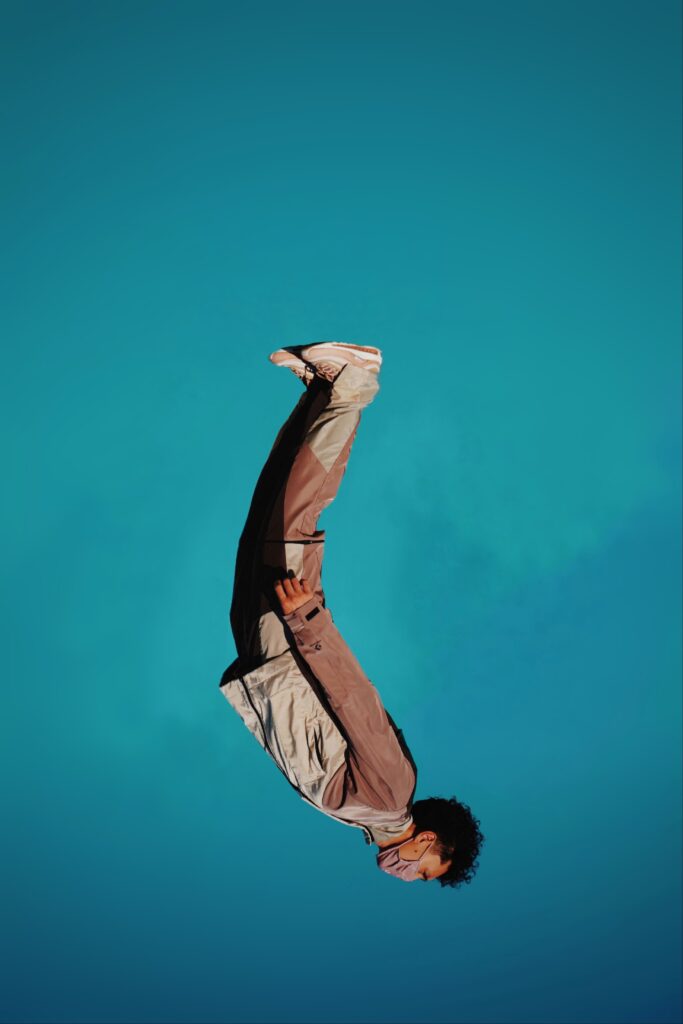Blindness is unavoidable.
There are so many things that we don’t know and it’s impossible to know all of them.
When we navigate a complex world with partial knowledge, blindness is unavoidable.
But some forms of blindness can be more costly than others.
In this article, I only focus on two.
One of them is exposed in the well-known experiment in psychology–the invisible gorilla.
But in matters of psychology, I keep in mind the quote of Ruth Rendell that says:
“The trouble with psychology is that it doesn’t take human nature into account”
So I try to balance a purely psychological view with a faith perspective.
The result is an exposition to two different types of blindness that are worth knowing.
The Invisible Gorilla Experiment
Before you continue reading, please watch the short video above.
it says a lot about the nature of our perception.
People from Harvard University were asked to watch this video and count the number of basketball passes made by the white team.
So here you have six people–three in white and three in black- passing basketballs around the front of an elevator.
While the teams are playing, a gorilla comes walking. It stands in the center of the video, pounds on his chest, and leaves.
By the end of the video, the participants, who were only expecting a question about the count of passes, were asked instead: Did you see the gorilla?
And you know what? 50% of the people who watched the video and counted the passes missed the gorilla.
How is that possible?
If you knew about this experiment, try the second one of Daniel Simons called The Monkey Business Illusion.
How Is That Possible?

The experiment says two things about us:
(1) We can be blind to the obvious.
(2) We have no clue that we’re missing so much.
For the participants to count the passes, they needed to be focused.
As the teams were mixed and moving around constantly, you can’t do this task without focus.
So their goal was set–to count the passes.
But while they are concentrated on the basketball, what they do not see?
Practically everything else.
It is as we’re doing a screening of the world. Any fact that is not directly linked to the goal becomes invisible.
This is kind of scary.
Depending on the goals we set, we’ll become blind to everything else.
Another way to look at this experiment is related to conflicts and disagreements.
We can look at the same set of facts. But because of what we’re focusing on, the world will manifest itself differently.
In reality, we rarely consider the same set of facts, so it is unlikely that we could see the world the same way.
Blindness From a Quranic Perspective

There is a dozen of ayats in the Quran–like the one below–that question our ability to see:
“Have they not seen how many disbelieving peoples We destroyed before them?” [Quran 6:6]
In general, Allah wants to bring our attention to the history of nations or the creation around us.
Besides these ayats, others contain a deep spiritual and psychological reality:
“Indeed, We have destined many jinn and humans for Hell. They have hearts they do not understand with, eyes they do not see with, and ears they do not hear with. They are like cattle. In fact, they are even less guided! Such people are entirely heedless.” [Quran 7:179]
“And We will turn away their hearts and their eyes just as they refused to believe in it [i.e., the revelation] the first time. And We will leave them in their transgression, wandering blindly.” [Quran 6:110]
“So have they not traveled through the earth and have hearts by which to reason and ears by which to hear? For indeed, it is not eyes that are blinded, but blinded are the hearts which are within the breasts.” [Quran 22:46]
After reading these ayats, the first question that comes to mind is:
Why the blindness of the eyes is preceded by the blindness of hearts?
The Blindness of the Heart

The heart is considered the seat of the Ruh–the Arabic world for soul or spirit.
It’s the immaterial essence inside.
Just like the body, the ruh has its own needs.
The food of the ruh comes from connecting with the divine.
But when the heart dies, we starve our ruh to death.
You can think of the heart as a muscle. If you don’t use it, you’ll lose it.
This is the kind of blindness that the Quran addresses.
It means we are unable to see that there’s more to the physical reality.
We start looking at the world with one eye only–what we see is all there is.
We can sense this blindness in the use of today’s language.
The ruh is dismissed to focus on the needs of the body. Allah was replaced by the Universe. And of course, if there’s no ruh and no Allah, there’s no afterlife either.
With one eye left, it’s easy for the ego (nafs) to take control of the body, indulge in its needs, and live for the here and now.
How Can We Prevent This Type of Blindness?

We humans don’t come to the world as empty vases waiting to be filled.
What all of us share at birth is a natural predisposition to connect with the divine.
We come to the world with pre-knowledge and tools to grasp the spiritual reality.
The revealed knowledge–like Quran– reminds us of this other reality.
When we use our intellect and free will in the right way, we can reach this state of tranquility where the body and soul are working in harmony.
The key is to be conscious of the two intellects we possess.
Imam Ali expanded on this by saying:
“There are two intellects: one is innate and one is acquired. The acquired is of no benefit if one loses the innate just like the light of the sun is of no benefit when the light of the eyes is missing.”
Our mission is then to not let our natural predisposition fade.
It’s the only way we can be totally ourselves and avoid falling into despair.
Final Thoughts

Knowing about the invisible gorilla and the blindness from the Quran perspective can protect us from two types of dangers:
(1) The danger of setting the wrong goals in life.
(2) The danger of not exercising our spiritual muscle.
If blindness is unavoidable, at least we want to be blind to secondary things.
We know that, once we set goals, we’ll become blind to everything else.
We also know that if we let our natural predisposition fade, we’ll miss our spiritual reality.
So if we want to set the right goals and live a complete life, we need some help.
And can we find a better helper than the One who has complete knowledge?
Article posted: 13 June 2021
Popular Articles
- 7 Lessons from Luqman that Will Make You Wise
- How to Enjoy Salat and Make it Meaningful
- Mongols Invasions: Some Forgotten Lessons to Today’s Muslims
- For or Against Vaccines? That’s Not Really the Question
- Are Muslims Meant to Be Sleep Deprived?
- Islamic Psychology: A Model Where Faith Has Its Place
- Muslims Judging Each Other: Why and How to Be Less Judgy
- The Certainties of Muslims in Uncertain World
- Allah According to Allah: The Beauty Behind the Verse of Light
- How to Make People Change their Mind: Persuasion!
